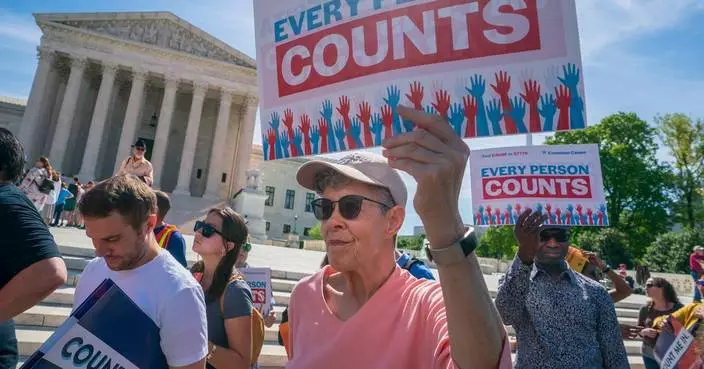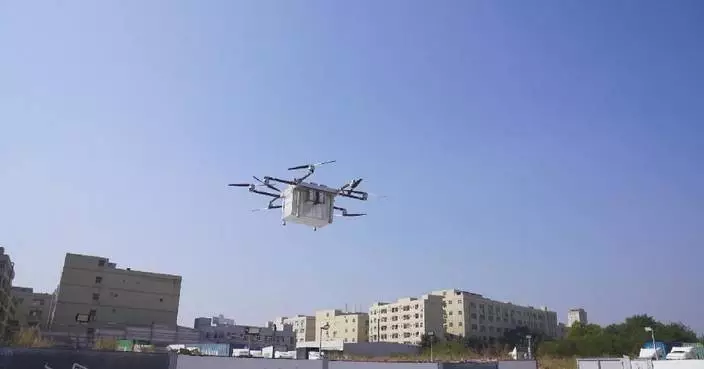Feature · News

Evidence reveals transfer of live humans for experiments by Unit 731 of WWII Japanese forces

China's Greater Bay Area attracts int'l enterprises, forging new tech hub
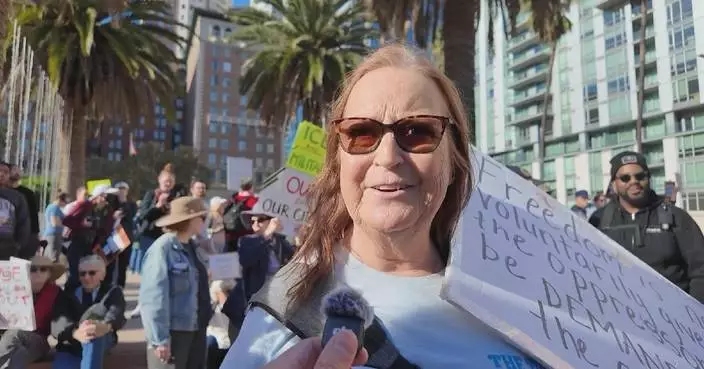
Protests erupt in Los Angeles against ICE, U.S. actions in Venezuela
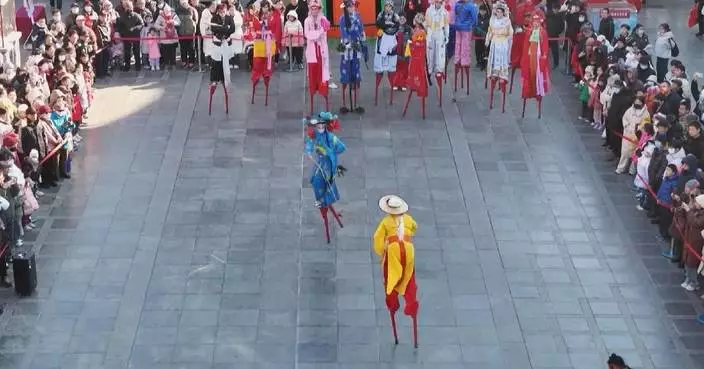
China’s 2026 consumption season fuels holiday shopping boom nationwide

China, Lesotho to strengthen exchanges, advance cooperation

Myanmar holds second round of voting in first general election since military takeover

Chinese premier stresses coordination of fiscal, financial policies to boost demand
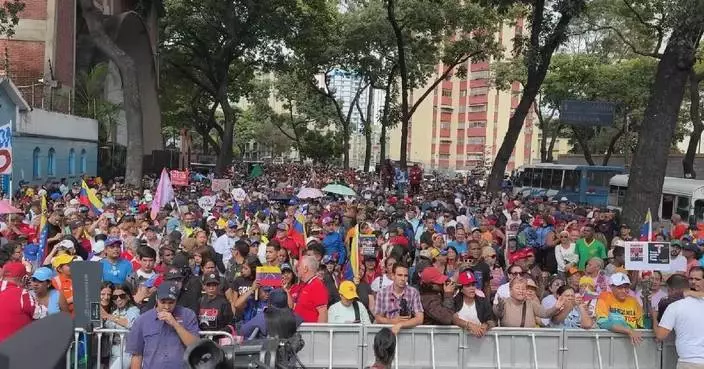
Protests in Venezuela demand release of Maduro couple

Anti-ICE nationwide protests in photos

U.S. share of global economy hits lowest point since 1980: Russian media
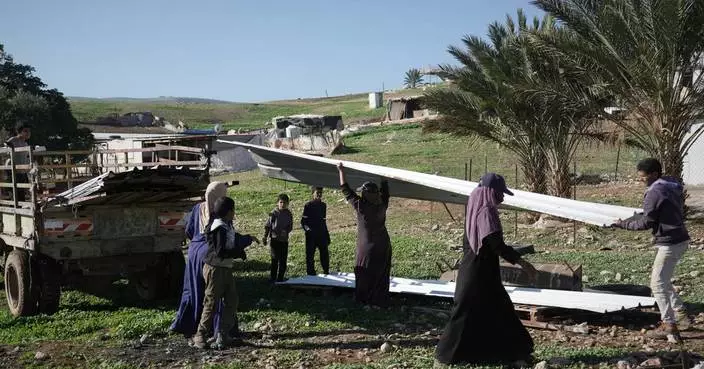
Settler violence in the Jordan Valley expels Palestinians from one of the few towns left standing
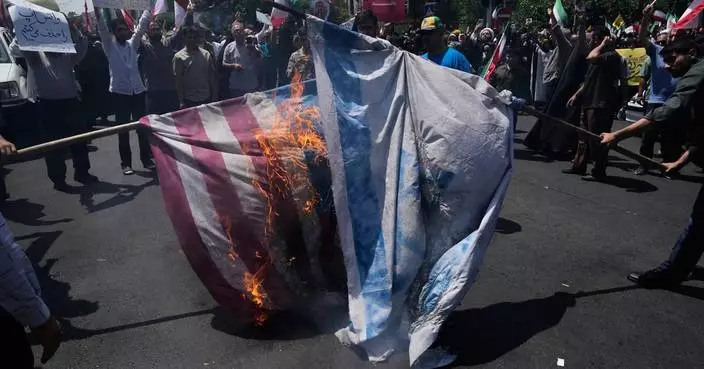
Iranian protests are growing. Israel is watching closely

Iran swears to counterattack if attacked

BRICS countries kick off joint maritime exercise in South Africa
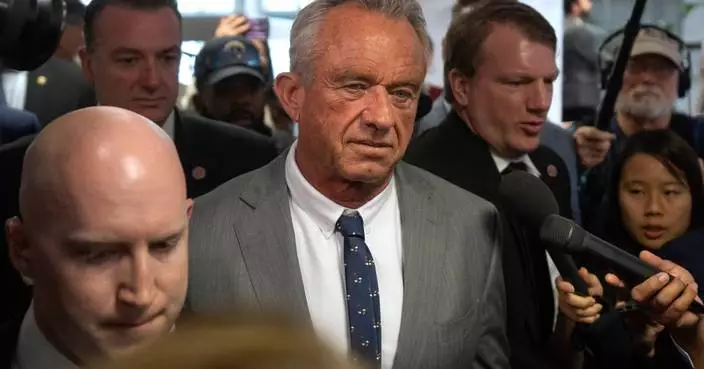
Germany sharply rejects RFK Jr.'s claims that it prosecutes doctors for vaccine exemptions
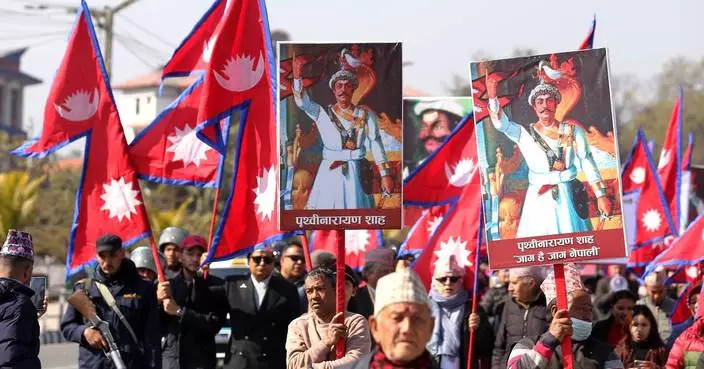
Nepalese royalists demand monarchy restoration ahead of March elections
Chinese premier stresses coordination of fiscal, financial policies to boost demand
Protests in Venezuela demand release of Maduro couple

Anti-ICE nationwide protests in photos
U.S. share of global economy hits lowest point since 1980: Russian media
Evidence reveals transfer of live humans for experiments by Unit 731 of WWII Japanese forces
China's Greater Bay Area attracts int'l enterprises, forging new tech hub
Protests erupt in Los Angeles against ICE, U.S. actions in Venezuela
China’s 2026 consumption season fuels holiday shopping boom nationwide
China, Lesotho to strengthen exchanges, advance cooperation

Myanmar holds second round of voting in first general election since military takeover

Settler violence in the Jordan Valley expels Palestinians from one of the few towns left standing

Iranian protests are growing. Israel is watching closely
Iran swears to counterattack if attacked
BRICS countries kick off joint maritime exercise in South Africa

Germany sharply rejects RFK Jr.'s claims that it prosecutes doctors for vaccine exemptions

Nepalese royalists demand monarchy restoration ahead of March elections
Feature·Bloggers

【What Say You?】Trump’s “Maduro Grab” Gets a Glossy Spin by the Usual Suspects

【What Say You?】Trump's Judicial Theater: Maduro's Fate Already Sealed

【Deep Throat】Trump's Venezuelan Oil Grab: Big Oil Not Playing Along?

The Most Laughable Lie of the New Year: Jimmy Lai's "Grave Illness" Falls Apart Under Five Hard Facts

【What Say You?】Black Riots “comrades” Thought Ukraine Was Another “Resistance”—Then the Contract Hit

【Bastille Commentary】Green Nails? The Lie No Lawyer Would Touch

The Latest: Golden Globes kicks off Hollywood's 2026 awards season
- Trump 'inclined' to keep ExxonMobil out of Venezuela after CEO response at White House meeting
- Celebrities wear pins protesting ICE on the Golden Globes red carpet
- Suspect arrested on suspicion of arson after a fire damages a historic Mississippi synagogue
- The Golden Globes are tonight. Here's what to look for and how to watch and stream the show
- Hong Kong court to hear plea for lighter sentence in pro-democracy ex-media mogul Jimmy Lai's case
- Red lines and increasing self-censorship reshape Hong Kong's once freewheeling press scene
- Immigration arrests and tense confrontations in Minneapolis, in photos
- A Minneapolis church holds a service of 'Lament and Hope' amid fears over immigration crackdown
- Video captures Minneapolis immigration arrest in a city on edge after shooting of Renee Good

Iranian president says government focusing on ensuring supplies amid protests
- Protests erupt across US over ICE shootings
- Chinese exhibitors present more cooperation opportunities at 2026 CES
- Inner Mongolia section of Yellow River enters stable ice period after 48 days
- Aerial footage records snowy Tianshan Mountains of Xinjiang
- Site in Sichuan wins UN award for outstanding protection of ecological, cultural heritage
- SCO demonstration area in coastal Qingdao reports expanding Europe-bound freight train services in 2025
- Central Japan's Wajima continues slow path toward reconstruction 2 years after earthquake
- China’s ski resorts, ice rinks draw crowds as winter season peaks
- China's Huangpi Lake sees spectacular "Bird Wave" as winter migration peaks

MoneyHero Chief Commercial Officer Views Hong Kong as Most Diversified Market, Eyes Future in Digital Assets
- A $400,000 payout after Maduro's capture is putting prediction markets in the spotlight
- Google teams up with Walmart and other retailers to enable shopping within Gemini AI chatbot
- Alamar Biosciences Announces Close of Oversubscribed Convertible Notes Financing and Expansion of Leadership Team
- Thousands of New York City nurses set to strike Monday if deal isn't reached with hospitals
- Rich Sparkle Holdings Closes Acquisition of TikTok Icon Khaby Lame's Core Company
- Supermicro Announces Intelligent In-Store Retail Solutions in Collaboration with a Broad Range of Industry Partners
- Death toll in 2-week-old protests challenging Iran's theocracy reaches 116, activists say
- GAC Magazine Battery and Solid-State Battery Win Top National Honor
- GAC's Quark Electric Drive Achieves the World's First DAkkS ASIL D Functional Safety and Information Security Dual Certification

How Olympians think about success and failure and what we can learn from them
- Erich von Däniken, Swiss writer who spawned alien archaeology, dies at 90
- VR headsets are 'hope machines' inside California prisons, offering escape and practical experience
- Doctors say changes to US vaccine recommendations are confusing parents and could harm kids
- Strength training is crucial after menopause. How to make the most of your workouts
- Meta lines up massive supply of nuclear power to energize AI data centers
- From climbing vacuums to cyber pets: Some highlights of CES 2026
- Musk's Grok chatbot restricts image generation after global backlash to sexualized deepfakes
- Some flu measures decline, but it's not clear this severe season has peaked
- NASA, in a rare move, cuts space station mission short after an astronaut's medical issue

Fashion takes center stage on Golden Globes red carpet
- See photos of stars arriving for the 2026 Golden Globe Awards
- Reference to Trump's impeachments is removed from the display of his Smithsonian photo portrait
- Buddhist monks and their dog captivate Americans while walking for peace
- Andrea Bocelli will headline the Milan Cortina Winter Olympic opening ceremony
- Grateful Dead founding member Bob Weir dies at 78
- Veteran actor T.K. Carter, known for 'The Thing' and 'Punky Brewster,' dies at 69
- Hollywood couple Meagan Good and Jonathan Majors gain Guinean citizenship
- Actor Timothy Busfield accused of child sex abuse in New Mexico
- Hollywood stars gather for an all-winners celebration at the American Film Institute Awards

Purdy, 49ers eliminate defending Super Bowl champion Eagles with 23-19 win in wild-card game
- Joonas Korpisalo stops 27 shots in Bruins' 1st shutout of the season; 1-0 win over Penguins
- No. 25 UCF beats Cincinnati 73-72 on Themus Fulks' jumper in final seconds
- Bayern demolishes Wolfsburg 8-1 to go 11 points clear in Bundesliga
- World champ Malinin leads one of the strongest US Figure Skating teams ever into Winter Olympics
- Matt LaFleur expects to meet with Packers president Ed Policy soon regarding his future
- Josh Allen carries Bills to 27-24 win at Jags for Buffalo's first road playoff victory in 33 years
- Cedric Coward hits 2 late 3s to help the Grizzlies beat the Nets 103-98
- Barcelona beats Real Madrid again to win Spanish Super Cup in Saudi Arabia clasico
- Trevor Lawrence has to 'live with' costly turnovers in Jaguars' playoff loss to Bills

Applications Open for Enrolled Nurse Training Programme in Welfare Sector Starting 2026-27
- No New Chikungunya Cases Reported in Hong Kong as Government Enhances Mosquito Control Measures
- Record turnout for Jockey Club Special Marathon to promote social inclusion
- Nestlé Hong Kong Recalls Additional Infant Formula Over Bacillus Cereus Contamination Concerns
- V Mart Opens at Victoria Park, Showcasing Cultural Arts and Pet-Friendly Events for Chinese New Year
- Hospital Authority Enhances Medical Fee Waiver Process for Financially Needy Patients
- Hong Kong reports no new chikungunya fever cases; ongoing mosquito control efforts continue in affected areas
- Woman Sentenced to Six Months for Smuggling Duty-Not-Paid Cigarettes in Hong Kong
- 18 Temporary Cold Shelters Opened Amid Severe Weather for Those in Need
- CHP Urges Vulnerable Groups to Take Precautions Against Cold Weather Health Risks

Israel plans to launch new round of strikes on Gaza Strip: media
- Xinjiang's Bosten Lake hosts thrilling ice sailing regatta to boost winter tourism
- Shanghai launches year-long global food festival in 2026
- Inbound, outbound passenger trips up 43.8 pct in northeast China's Heilongjiang
- China, Lesotho elevate partnership to deepen trade, energy cooperation
- Winter fishing festival kicks off at Hasuhai Lake in north China's Inner Mongolia
- Robotic traffic officer on duty in east China's Anhui
- J-35 fighter makes first flight of 2026
- China vows effective punishment against Taiwan separatists
- AU Commission chief reiterates firm adherence to one-China principle
Category · News

The Latest: Golden Globes kicks off Hollywood's 2026 awards season

Applications Open for Enrolled Nurse Training Programme in Welfare Sector Starting 2026-27

Purdy, 49ers eliminate defending Super Bowl champion Eagles with 23-19 win in wild-card game

Fashion takes center stage on Golden Globes red carpet

Trump 'inclined' to keep ExxonMobil out of Venezuela after CEO response at White House meeting

Joonas Korpisalo stops 27 shots in Bruins' 1st shutout of the season; 1-0 win over Penguins

See photos of stars arriving for the 2026 Golden Globe Awards

Celebrities wear pins protesting ICE on the Golden Globes red carpet

How Olympians think about success and failure and what we can learn from them

No. 25 UCF beats Cincinnati 73-72 on Themus Fulks' jumper in final seconds

Bayern demolishes Wolfsburg 8-1 to go 11 points clear in Bundesliga

Suspect arrested on suspicion of arson after a fire damages a historic Mississippi synagogue

The Golden Globes are tonight. Here's what to look for and how to watch and stream the show

Hong Kong court to hear plea for lighter sentence in pro-democracy ex-media mogul Jimmy Lai's case

Red lines and increasing self-censorship reshape Hong Kong's once freewheeling press scene

Immigration arrests and tense confrontations in Minneapolis, in photos

MoneyHero Chief Commercial Officer Views Hong Kong as Most Diversified Market, Eyes Future in Digital Assets

A Minneapolis church holds a service of 'Lament and Hope' amid fears over immigration crackdown

World champ Malinin leads one of the strongest US Figure Skating teams ever into Winter Olympics

Matt LaFleur expects to meet with Packers president Ed Policy soon regarding his future

Josh Allen carries Bills to 27-24 win at Jags for Buffalo's first road playoff victory in 33 years

Video captures Minneapolis immigration arrest in a city on edge after shooting of Renee Good

Cedric Coward hits 2 late 3s to help the Grizzlies beat the Nets 103-98

Barcelona beats Real Madrid again to win Spanish Super Cup in Saudi Arabia clasico

Trevor Lawrence has to 'live with' costly turnovers in Jaguars' playoff loss to Bills

US bobsledder Kris Horn survives solo ride in St. Moritz, after teammates fail to get into sled

49ers' George Kittle carted off with right Achilles tendon injury in playoff game against Eagles

Magic beat Pelicans 128-118 in Moritz Wagner's return from knee injury

Man United crashes out of FA Cup as club weighs up candidates for interim coach

Desbiens stops 26 shots, Gosling scores in Victoire's 1-0 win over Goldeneyes in Quebec City

Tanner Pearson breaks 3rd-period tie in Jets' 4-3 victory over Devils

Bills join Bears and Rams in advancing to divisional round with comeback wins in NFL playoffs
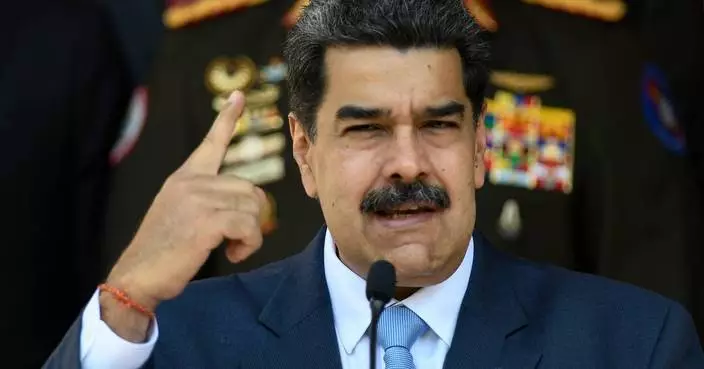
A $400,000 payout after Maduro's capture is putting prediction markets in the spotlight

Google teams up with Walmart and other retailers to enable shopping within Gemini AI chatbot

Katerina Mrazova’s shootout goal earns Ottawa Charge a 2-1 win over Boston Fleet
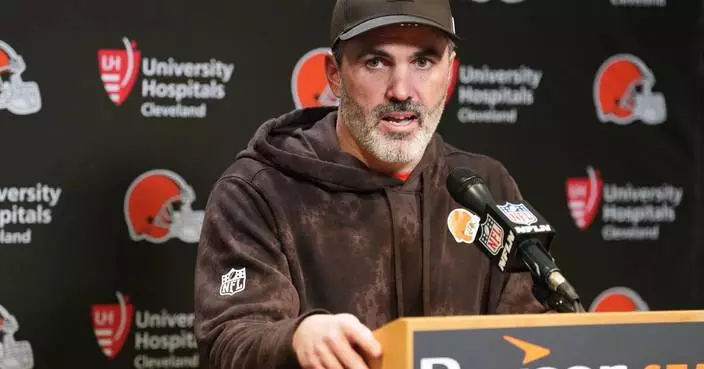
Falcons continue search to replace Raheem Morris, interview former Browns coach Kevin Stefanski

Reference to Trump's impeachments is removed from the display of his Smithsonian photo portrait
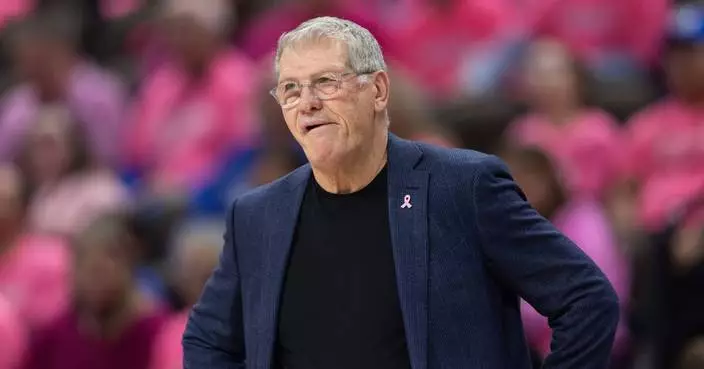
Sarah Strong's 18 points and 13 rebounds lead No. 1 UConn in 95-54 rout of Creighton
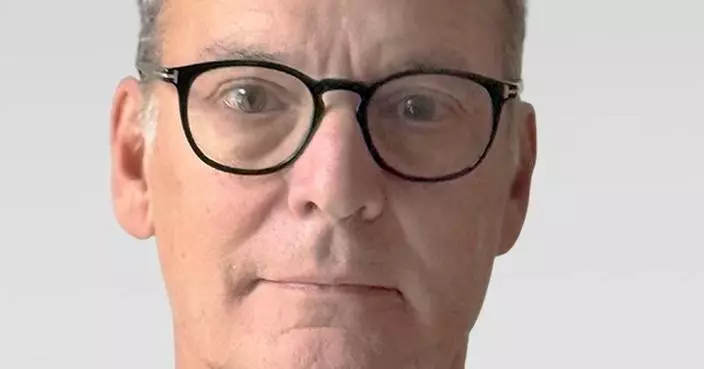
Alamar Biosciences Announces Close of Oversubscribed Convertible Notes Financing and Expansion of Leadership Team

Thousands of New York City nurses set to strike Monday if deal isn't reached with hospitals
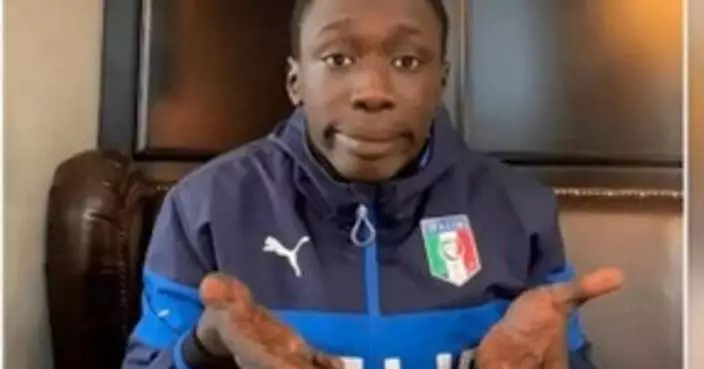
Rich Sparkle Holdings Closes Acquisition of TikTok Icon Khaby Lame's Core Company

Wildfires in south Argentina rip through nearly 12,000 hectares of forest, threatening communities

First responders enter devastated Aleppo neighborhood after days of deadly fighting

Transgender teen athlete in a Supreme Court fight knows the upcoming sports season could be her last

Former New Jersey acting governor Richard Codey dies at 79

US international Josh Sargent refused to play in FA Cup game, says Norwich coach

Inside the Numbers: How Indiana and Miami stack up going into CFP national championship game

Panthers LT Ickey Ekwonu to miss significant time with ruptured patella tendon in right knee

Guard at Winter Olympic construction site dies in nighttime subfreezing temperatures
Iranian president says government focusing on ensuring supplies amid protests

Avalanche run their home winning streak to 17 games, one away from matching franchise record

Humphries Armbruster wins World Cup bobsled race, while Forgan and Kirkby lock up Olympic luge spot

Lategan's late trouble gifts Dakar Rally stage seven to Ekström
Protests erupt across US over ICE shootings
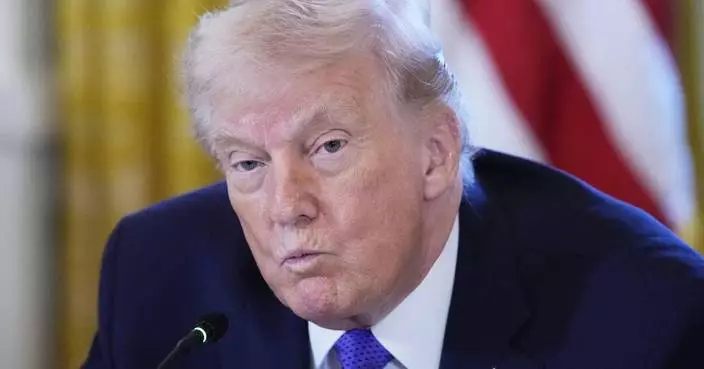
With Cuban ally Maduro ousted, Trump warns Havana to make a 'deal' before it's too late
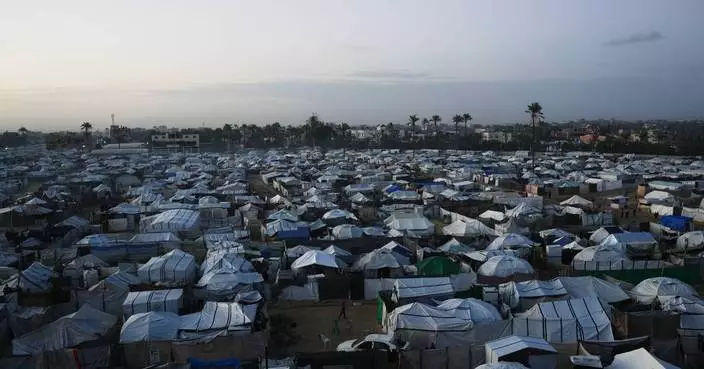
Hamas says it will dissolve its Gaza government when new Palestinian body takes over
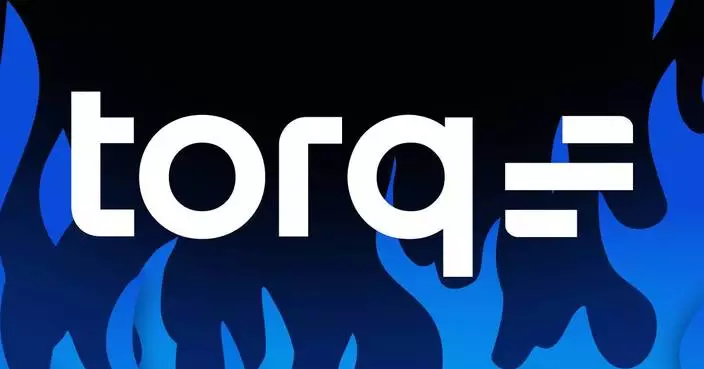
Torq Secures $140M Series D at $1.2B Valuation to Lead the AI SOC and Agentic AI Era

Thousands of tourists stranded in northern Finland as deep freeze halts flights
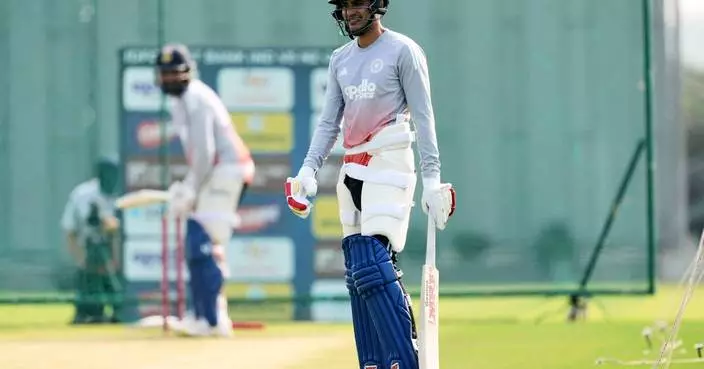
Virat Kohli hits 93 to lead India to 4-wicket win over New Zealand in first ODI

IOC happy as new Milan Cortina hockey arena almost ready to welcome NHL players

Liverpool defender Conor Bradley sustains significant knee injury

US international Ricardo Pepi out 2 months with broken arm but should recover in time for World Cup
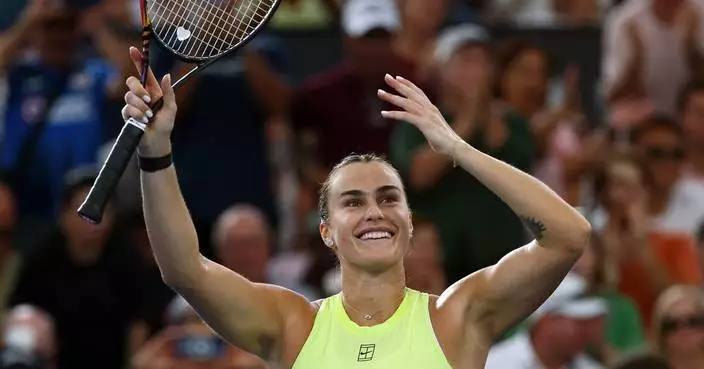
Sabalenka wins Brisbane final amid frosty exchange with Kostyuk, Medvedev tops Nakashima

Erich von Däniken, Swiss writer who spawned alien archaeology, dies at 90

Poland overcomes Świątek defeat to Bencic and rallies to beat Switzerland in United Cup final

Paco Rassat races to 2nd World Cup slalom win in breakout season ahead of Olympics

Supermicro Announces Intelligent In-Store Retail Solutions in Collaboration with a Broad Range of Industry Partners
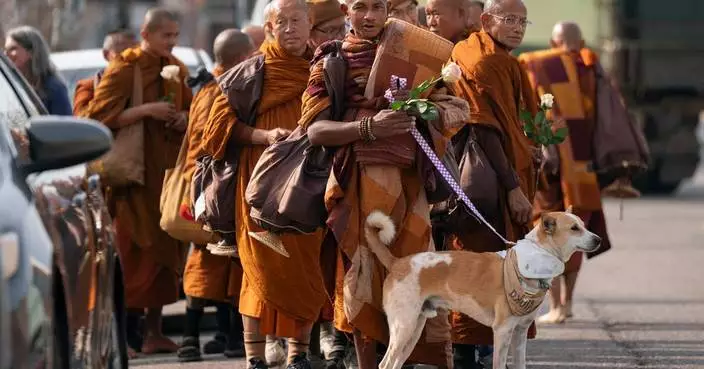
Buddhist monks and their dog captivate Americans while walking for peace
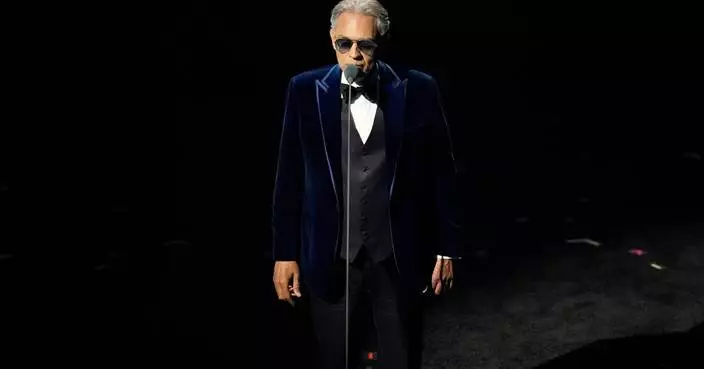
Andrea Bocelli will headline the Milan Cortina Winter Olympic opening ceremony
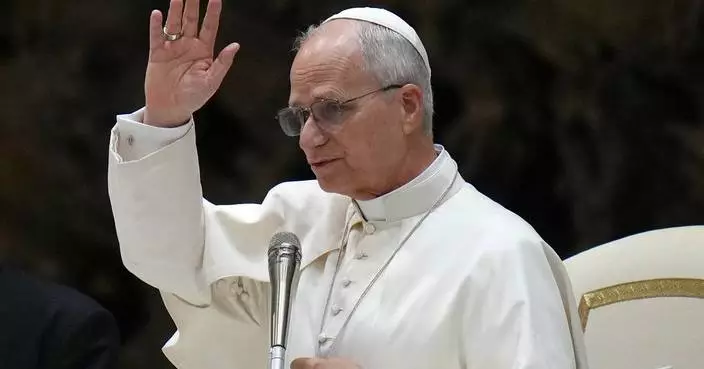
Pope Leo baptizes 20 infants in a tradition marking the end of the Christmas season
Chinese exhibitors present more cooperation opportunities at 2026 CES

Death toll in 2-week-old protests challenging Iran's theocracy reaches 116, activists say

GAC Magazine Battery and Solid-State Battery Win Top National Honor
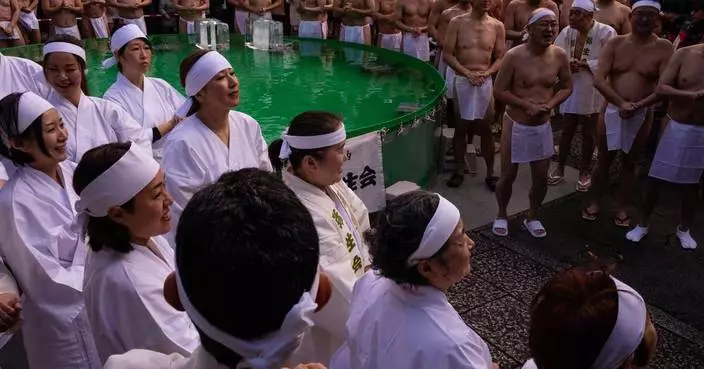
Braving the cold: Tokyo's New Year's ritual of ice baths, in photos
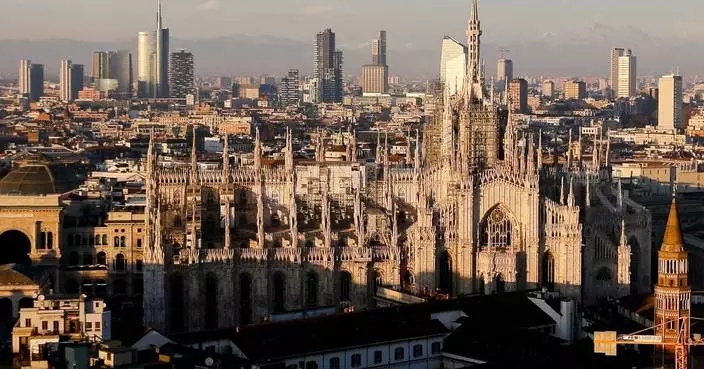
Milan’s Catholic archdiocese brings Olympic values into parish life
Inner Mongolia section of Yellow River enters stable ice period after 48 days
Aerial footage records snowy Tianshan Mountains of Xinjiang
Site in Sichuan wins UN award for outstanding protection of ecological, cultural heritage
SCO demonstration area in coastal Qingdao reports expanding Europe-bound freight train services in 2025
Central Japan's Wajima continues slow path toward reconstruction 2 years after earthquake
China’s ski resorts, ice rinks draw crowds as winter season peaks
China's Huangpi Lake sees spectacular "Bird Wave" as winter migration peaks
Israel plans to launch new round of strikes on Gaza Strip: media
Xinjiang's Bosten Lake hosts thrilling ice sailing regatta to boost winter tourism




